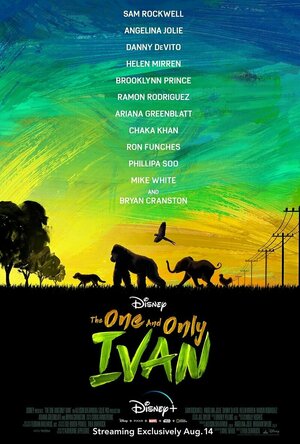Darren (1599 KP) rated Obey (2018) in Movies
Aug 30, 2019
Story: Obey starts as we meet Leon (Rutherford) a 19-year-old man living in London, he doesn’t have the education, he spends most of his time getting high and drinking with friends, while causing trouble with other gangs, Leon does train in boxing and is starting to wonder what his life is meant to be.
As the violence in the surrounding neighbourhood, Leon starts to question everything more, as he sees his friends acting out causing bigger problems, while he homelife isn’t getting any better with his alcoholic mother, stopping him from getting a chance to improve himself and the woman he meets Twiggy (Clark) only gives him mixed messages.
Thoughts on Obey
Characters – Leon is the 19-year-old man that was raised in the London, where he has become part of a gang, didn’t get a chance at an education and is left facing a life of uncertainty. Leon is feeling like life is going no where now and he wants to do something about it, this could see him go back into education or continue his training in boxing, but the reality comes with him that he just doesn’t want to get involved in criminal actions going on within London, it is a make or break time for the young man, that we completely understand his position in life. Twiggy is the woman that Leon meets, she has been squatting in London with her boyfriend, though she is a free spirit that isn’t looking for trouble, which makes her different to everybody else in Leon’s life. Anton is her boyfriend that we don’t learn to much about other than he is happy to hang out with whoever and fights for rights. We do get to meet most of the gang Leon is in, though the names are easy to forget, they represent a life of crime he could fall into, Leon’s alcoholic mother and her abusive boyfriend, each character does seem to reflect a life Leon could have.
Performances – Marcus Rutherford easily gives us a standout performance in this film, he will make you understand every single situation his character is going through, which is a delight to watch. Sophie Kennedy Clark is everything she needs to be, with the whole supporting cast making you feel like you are part of this world that Leon is living through.
Story – The story here follows a young man who grew up in London as part of a gang, who isn’t given a chance of a future, until he meets a stranger and is left to decide what he wants for his own future. This story is a true eye opener when it comes to showing us how the gang situation happens, is treated and how hopeless somebody could be if they are trapped within it. We do only follow one person, who is given a few outs, through support, a woman, but is also held back by his lack of education, his gang friends and caring for his addict mother. This does show us how hard the life can be, how the mentality can see the person making the wrong decisions, how the outsiders can see them as wrong, rather than not given a chance. This is an important story for the people of England to see and one that could open up more eyes to what the problems really are, not what they think they are.
Settings – The film is set in London, this does show us just how difficult the life would be for Leon and other young people in this location, if they haven’t been given a chance.
Scene of the Movie – The journey.
That Moment That Annoyed Me – Not enough development of the supporting characters.
Final Thoughts – This is one of the most important eye openers in the world of film, it doesn’t glorify anything, just keeps it feeling realistic throughout the film.
Overall: Important drama.

Law of Attraction Hypnosis by Glenn Harrold
Lifestyle and Health & Fitness
App
This deeply relaxing Law of Attraction hypnosis recording by Glenn Harrold will help you to project...

A Chakra Meditation by Glenn Harrold
Lifestyle
App
A Chakra Meditation is a superb high quality hypnotherapy App by the multi-million selling...

Boarding Pass Flight Check In
Travel and Navigation
App
Are you a frequent flyer? Tired of searching for itineraries in your emails and of having the...

Christ In Song
Music and Book
App
We are pleased to present the Christ in Song hymn treasury. These hymns are hand-picked for their...
Ivana A. | Diary of Difference (1171 KP) rated Alfonso in Books
Aug 3, 2020
<a href="https://diaryofdifference.com/">Blog</a>; | <a href="https://www.facebook.com/diaryofdifference/">Facebook</a>; | <a href="https://twitter.com/DiaryDifference">Twitter</a>; | <a href="https://www.instagram.com/diaryofdifference/">Instagram</a>; | <a href="https://www.pinterest.co.uk/diaryofdifference/pins/">Pinterest</a>;
<img src="https://i0.wp.com/diaryofdifference.com/wp-content/uploads/2020/04/Book-Review-Banner-35.png?w=663&ssl=1"/>;
Alfonso is a young man that has moved to Australia to find a better life. Through his story, we follow his feelings and search for purpose.
As a person that moved to another country to find a better life, I can understand Alfonso and I can relate to what he feels and thinks. Coming into another country can be extremely difficult, leaving your family and friends behind, knowing those relationships will never be the same again. Coming to terms with the fact that you will always be a foreigner and have trouble with people accepting you. Trying to make friends and get inside inner circles of people that have been together since high-school – yeah, good luck with that…
Given how I can relate to Alfonso’s situation, and the similarities I have with this character, I thought I would love this book. But I didn’t. Even though I could relate with him, I couldn’t agree with his perceptions and beliefs. Alfonso was always trying to find a girl to spend his life with. Which is normal and expected. However, instead of being his true and authentic self, he desperately tries to be as “less foreign” as possible and adapt to his audience. This is something that seemed to push the potential women away. Not to mention that he was being quite creepy at times (following a girl’s bus schedule and being there before she departs etc.)
Living in a new environment shouldn’t mean that people should stop being who they are and stop believing in what they do, or respecting and practicing the customs from the country they were born and raised from.
All my friends know that in my country we boil and colour actual eggs for Easter, rather than eat chocolate ones. In our home, me and my boyfriend celebrate two Christmases; one on the 25th December, where he does everything by his tradition, and one on 7th January, where I prepare everything in my tradition. And it works. And it’s double the fun and jolly spirit.
I couldn’t relate with the fact that Alfonso feels that he needs to change and adapt, and leave behind his culture. I also couldn’t comprehend the fact that he needs to have a woman to be happy. He couldn’t seem to find happiness with just himself. And maybe, this is again, part of the tradition. In my country, marriages and forming a family are very important, and this may have influenced Alfonso’s behaviour perhaps.
The most upsetting part about this book was that the book ended, and everything remained the same. No earnings, no character development, no closure. Just a bad vibe of negativity, that was lingering in the air and stayed with me for days, like a bad taste in my mouth that you cannot wash with brushing your teeth.
I am not sure how to properly rate “Alfonso”. It was relatable, but conflicting. Very understandable, but unsatisfactory. And I will be honest, I read books that will either make me feel good, or teach me something new (or both), but this book didn’t provide either…
<a href="https://amzn.to/2Wi7amb">Wishlist</a>; | <a
<a href="https://diaryofdifference.com/">Blog</a>; | <a href="https://www.facebook.com/diaryofdifference/">Facebook</a>; | <a href="https://twitter.com/DiaryDifference">Twitter</a>; | <a href="https://www.instagram.com/diaryofdifference/">Instagram</a>; | <a href="https://www.pinterest.co.uk/diaryofdifference/pins/">Pinterest</a>;
Lee (2222 KP) rated The One and Only Ivan (2020) in Movies
Sep 2, 2020
There were no talking animals in the real version of events this is based on, but there was a silverback gorilla named Ivan,
Stolen as an infant from the rainforests of Congo and made to live in a tiny cage, while regularly putting on a show for visitors to a shopping centre for 27 years in total. This being a Disney movie though, the cruelty of that is glossed over somewhat, with funny animal friends with wacky voices aiming to brighten things up. Although, the message that his captivity was wrong is certainly there for all to see, and hopefully to be appreciated.
Bryan Cranston is Mack, the showman responsible for raising Ivan and making him a star, bristling when enthusiasm and “the show must go on” spirit, despite dwindling audiences and occasional animal illness. From flashbacks, it’s clear that Mack loves Ivan, his passion for raising him having cost him his marriage. But now that Ivan is the star of the show at the mini circus in the mall, complacency has set in, and Mack cannot see that all Ivan now truly wants is his freedom.
In an attempt to try and bring in the crowds, Mack brings in a baby elephant, which takes over top billing status from Ivan, much to his disappointment. Elderly elephant Stella (Angelina Jolie) takes the new baby under her wing, and during some late night storytelling sessions between the animals, we learn that Ivan had a sister back in the jungle, and was actually a budding artist, using mud to paint on rocks. When Julia, young daughter of one of the helping hands at the circus, gives Ivan some of her old crayons and finger paints, Ivan begins drawing again, and is soon moved back up to top billing in the show.
When I first saw the trailer for The One and Only Ivan, I was totally on board. That is, until the animals started talking. I thought the CGI remake of The Lion King last year was just terrible, and the Lady and the Tramp remake which landed on Disney+ earlier this year was even worse. Realistic looking animals simply cannot convey emotions like their traditionally animated counterparts, while retaining their realistic looks. But The One and Only Ivan thankfully feels so different, much better than those movies do. And a lot of that is down to the voice cast.
Sam Rockwell is Ivan. Perfectly cast, he brings a real much needed gravitas to the sombre silverback. Along with the stray dog (Danny DeVito) that visits Ivan’s cage and sleeps on his belly at night, they form a delightful double act, discussing freedom, and the fortunes of the circus. With a lot of time being spent with the animals in their cages, the movie does drag a little at times, but then maybe that’s the whole idea – portraying the solitude and boredom experienced when you do not have your freedom.
As if it wasn’t already clear enough, The One and Only Ivan nicely drives home the important message that animals really shouldn’t be kept in pokey cages for long periods of time, and certainly not for decades either. The end of the movie reminds us that Ivan’s story is actually based on truth, as we’re shown photos of the real Ivan, who stayed with a family before becoming a circus act. Seeing the photos of his eventual release to the vastly improved setting of Atlanta zoo, where he lived out the rest of his days, certainly proves to be very emotional, and a fitting end to a surprisingly enjoyable family movie.

Papa's Pancakeria HD
Games
App
Rise and shine with seasonal pancakes, waffles and more in Papa's Pancakeria HD! -- ABOUT THE GAME...

Papa's Cupcakeria HD
Games
App
Bake and decorate delicious cupcakes through all of the fun holidays in Papa's Cupcakeria HD! --...

AikidoGuide
Sports and Education
App
THE AIKIDO GUIDE is a powerful tool that fully utilizes app technology to give a unique learning...


